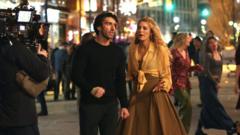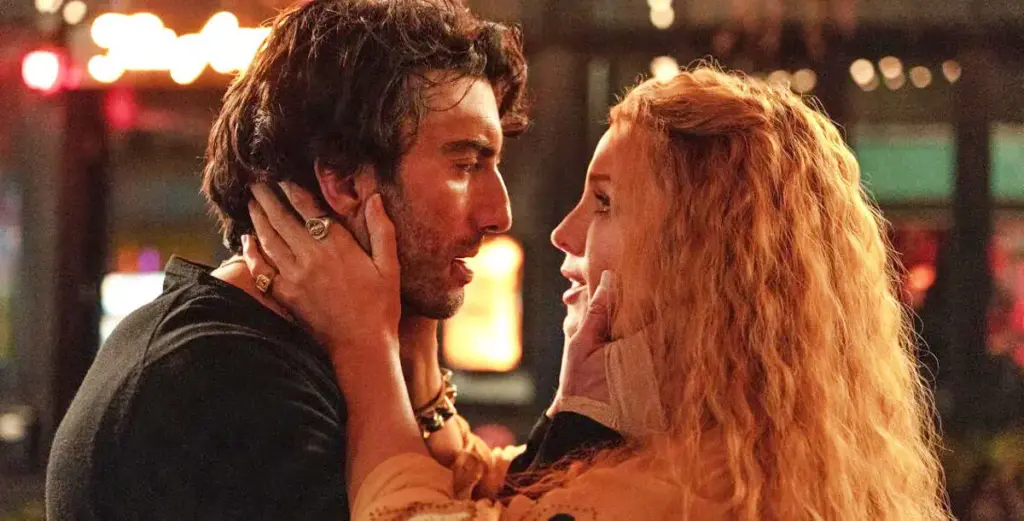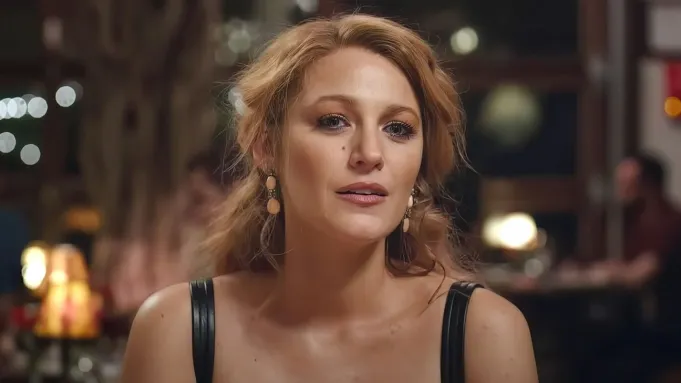In a tense first court hearing held in Manhattan, lawyers representing actress Blake Lively and actor Justin Baldoni engaged in heated exchanges over serious allegations arising from their film, "It Ends With Us."
Lively's legal action initiated in December, claiming Baldoni harassed her and initiated a damaging smear campaign. Baldoni, in response, has denied these allegations and filed a defamation lawsuit against Lively. Neither actor was present during the one-and-a-half-hour pretrial session in federal court on Monday, but the atmosphere was charged as both sides accused one another of maligning their respective clients outside the courtroom.
In his remarks to Judge Lewis Liman, Lively's attorney Michael Gottlieb stressed the importance of resolving the case legally rather than via media portrayals. He criticized Baldoni's lawyer, Bryan Freedman, for allegedly making "inflammatory extrajudicial comments" regarding Lively's character on news platforms. Freedman, however, countered that Gottlieb was attempting to stifle him and argued that it was Baldoni who was suffering harm to his reputation.
Baldoni's attorney claimed that his client is experiencing severe emotional and financial distress due to the allegations. The film, based on a bestselling novel by Colleen Hoover, had become a commercial success since its release in August, but reports of a tumultuous relationship between the co-stars surfaced prior to its premiere.
As the hearing unfolded, Judge Liman warned that if the legal issues became a media spectacle, he might expedite the trial date to avoid juror bias. He cited the New York Bar Association's Rule 3.6, which restricts attorneys from making public statements that could influence a trial's outcome.
Following the filing of an amended complaint by Baldoni’s team, which included a detailed 168-page account of events, they also launched a website to present supporting documents regarding the case. Lively's legal representatives questioned the origins and funding of this website, while they addressed the footage released from a romantic scene in the film that Baldoni claims invalidates Lively's allegations.
Lively’s team asserted that the footage was indeed incriminating and upheld her accusations. Furthermore, they plan to file an amended complaint incorporating more individuals into the legal drama. Baldoni is also pursuing a libel lawsuit against the New York Times, alleging that Lively leaked her civil rights complaint to media outlets. The Times has refuted these claims.
Several public relations firms associated with both actors during the filming are also implicated in the ongoing legal matters, which will reportedly be addressed in a separate trial. Judge Liman emphasized the necessity of a protective order, citing the involvement of numerous high-profile persons and the serious nature of the allegations.
Baldoni’s attorney pushed for a prompt trial, and Judge Liman agreed to maintain the expedited pre-trial schedule, indicating that the jury would ultimately weigh in on the case.
Lively's legal action initiated in December, claiming Baldoni harassed her and initiated a damaging smear campaign. Baldoni, in response, has denied these allegations and filed a defamation lawsuit against Lively. Neither actor was present during the one-and-a-half-hour pretrial session in federal court on Monday, but the atmosphere was charged as both sides accused one another of maligning their respective clients outside the courtroom.
In his remarks to Judge Lewis Liman, Lively's attorney Michael Gottlieb stressed the importance of resolving the case legally rather than via media portrayals. He criticized Baldoni's lawyer, Bryan Freedman, for allegedly making "inflammatory extrajudicial comments" regarding Lively's character on news platforms. Freedman, however, countered that Gottlieb was attempting to stifle him and argued that it was Baldoni who was suffering harm to his reputation.
Baldoni's attorney claimed that his client is experiencing severe emotional and financial distress due to the allegations. The film, based on a bestselling novel by Colleen Hoover, had become a commercial success since its release in August, but reports of a tumultuous relationship between the co-stars surfaced prior to its premiere.
As the hearing unfolded, Judge Liman warned that if the legal issues became a media spectacle, he might expedite the trial date to avoid juror bias. He cited the New York Bar Association's Rule 3.6, which restricts attorneys from making public statements that could influence a trial's outcome.
Following the filing of an amended complaint by Baldoni’s team, which included a detailed 168-page account of events, they also launched a website to present supporting documents regarding the case. Lively's legal representatives questioned the origins and funding of this website, while they addressed the footage released from a romantic scene in the film that Baldoni claims invalidates Lively's allegations.
Lively’s team asserted that the footage was indeed incriminating and upheld her accusations. Furthermore, they plan to file an amended complaint incorporating more individuals into the legal drama. Baldoni is also pursuing a libel lawsuit against the New York Times, alleging that Lively leaked her civil rights complaint to media outlets. The Times has refuted these claims.
Several public relations firms associated with both actors during the filming are also implicated in the ongoing legal matters, which will reportedly be addressed in a separate trial. Judge Liman emphasized the necessity of a protective order, citing the involvement of numerous high-profile persons and the serious nature of the allegations.
Baldoni’s attorney pushed for a prompt trial, and Judge Liman agreed to maintain the expedited pre-trial schedule, indicating that the jury would ultimately weigh in on the case.




















